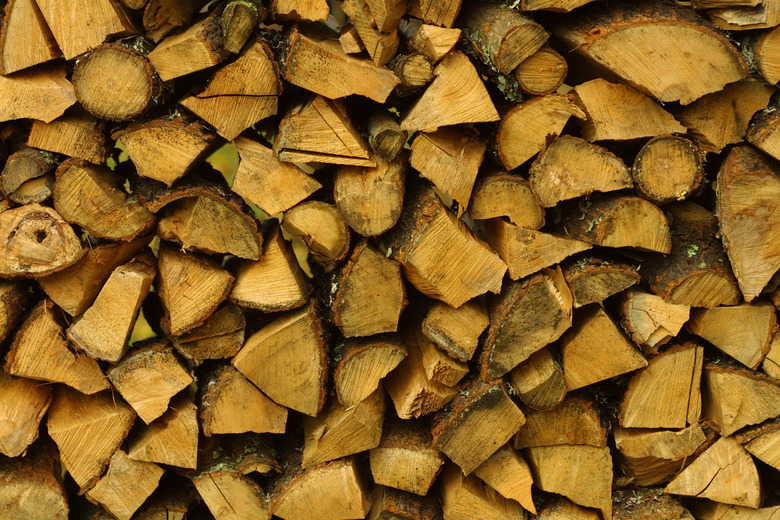Oak Vs. Almond Firewood
Choosing a good firewood can bring months of warmth and relaxation, but the wrong wood only brings frustration. Oak and almond both make excellent firewood. They are hardwoods, so they give off ample heat, and they both work well for cooking, too. Choose the wood for your home or smoker that works best for your situation.
Identification
While almost any wood can be used as firewood, whether a wood is hard or soft, green or seasoned can affect how well it burns. Hardwoods burn better than softwoods, as they are very dense and have more potential for energy per volume. They have higher British Thermal Unit (BTU) content. BTUs measure how much heat is given off by a piece of wood. "Green" firewood refers to wood that has just been cut. Green firewood does not burn as well as seasoned firewood, which has time to dry out for a while. Seasoning time varies, but usually at least six months is needed. Wood that has just come off the tree contains more moisture and is therefore harder to burn. Firewood that has been seasoned long enough is likely to burn well, regardless of what kind it is.
Benefits
Oak and almond woods are both hardwoods, so they give off the most heat. Almond gives off a long-lasting heat, and the fragrance is pleasing to use in a fireplace. The smoke's flavor works well for cooking meats. Oak is also a good firewood, as it puts out a lot of heat with a small flame, which can be safer around children. It has a heavy smoky flavor, which is good for meat as well.
Disadvantages
Oak takes a long time to season. As a matter of fact, it can take as much as two years to season oak appropriately. If it is not fully seasoned, the smoke can be bitter and dense. Oak can also rot while it is undergoing its extended seasoning time. In addition, almond and oak tend to take longer to light when compared with softwoods.
Considerations
The price of each of the woods varies, depending on which is more prevalent in your area. Almond and oak are more dense than some softwoods, so you are likely to pay more upfront. But because the wood is denser, it lasts longer and burns better than a cheaper softwood. If you find that almond is more expensive but you really love the smell, consider complementing your fire with almond, instead of entirely using almond wood.
